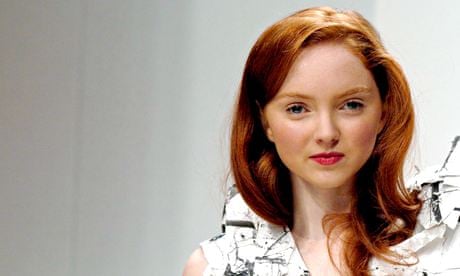Earlier this year model and actress Lily Cole founded a social business to encourage gift culture through a social network. Writing for the Guardian recently, Cole said: "My vision for Impossible – for what is possible – is rooted in the ever-present existence of possibility by which we are all individually, collectively, empowered."
Reminiscent of more specialised digital sharing sites such as Freecycle, SoundCloud, Youtube and Twitter – Cole's enterprise aims to encourage people to do and give things to others for free.
Other celebrities, such as Hugh Jackman, have launched physical businesses – in Jackman's case a selection of coffee shops – in order to create fairly paid work for farmers and their families in Ethiopia. Likewise, actress Emma Watson has collaborated with a variety of ethical clothing lines, such as People Tree and Pure Threads, in order to support Fairtrade fashion.
Lending a celebrity profile to a social business undoubtedly has its benefits. Cole, for example, has appeared on a variety of national media outlets to promote her initiative, and the business managed to secure a £200k grant loan in the first year alone. If celebrity profiles help to advance social businesses in this way, then certainly there is a benefit in involving celebrity culture in social enterprise.
However, some professionals from the sector disagree - and argue celebrity initiatives can overshadow or undermine less high-profile enterprises with similar social aims. Neil Griffiths, from Arts Emergency says: "If you rely on celebrity endorsement to prop up a failing or superficial product or charity service, then you are doing more harm than good … and quite probably taking the limelight away from other organisations doing good work in that field."
Lelia Khalifa, account director of somewhereto_, a social business which aims to connect vacant spaces with budding organisations, agrees: "Celebrities inevitably attract support which the average purpose-first cause isn't privy to, overshadowing their efforts and growth."
Griffiths founded his charity with British comedian Josie Long, and uses celebrity patrons such as Neil Gaiman and Guardian columnist Polly Toynbee to support their organisation. As director of the enterprise, Griffiths says celebrity endorsement isn't all it takes to make a real difference.
"I've seen a few social enterprises and arts charities spring up over the last few years that have used celebrity affiliation to raise large amounts of money that has quickly lead to big, expensive infrastructure, lots of managers and no workers – nice shiny offices and little more than a superficial end result for the service user. That is the risk that comes with the wave of passing interest generated by celebrity enterprises – it can lead to unnatural, unsustainable growth and it can divert resources from similar causes."
The motives of celebrity enterprises can also be called into question. Samantha Asumadu, founder of Media Diversified – a social enterprise that aims to tackle the lack of diversity in British media – believes celebrity social businesses can lack a personal connect with the people affected. "Grassroots groups are born out of passion, usually with few resources, because of seeing a need in their communities. Patronising initiatives by celebrities rarely, if at all, have any direct communication with the people they purport to help."
However, sector opinion about celebrity social enterprises remains divided, and there are many advantages to celebrity affiliation.
For example, considering the often isolated nature of social business, Khalifa feels social celebrities can offer a rich opportunity for greater collaboration within the sector. "Celebrities who are serious about making a difference can be powerful drivers of social change. Where they are genuinely open to working with like-minded organisations, why not explore opportunities to work together, with a view to making a bigger impact?"
"What is interesting is the gradual emergence of celebrities who aren't simply the faces of, but the creators behind, social businesses. Jamie Oliver's Fifteen and Lily Cole's Impossible are both interesting examples of influential people who are playing a central and sustained role in shaping new organisations committed to social change."
Celebrity social enterprises are slowly becoming a definite part of the social sector. As more and more initiatives partner with celebrities, the profile of the sector increases, which may lead to greater social impact. Khalifa sums up her views: "Any form of social action deserves championing, and having celebrities back causes that matter isn't something to just reject on principle."

Comments (…)
Sign in or create your Guardian account to join the discussion